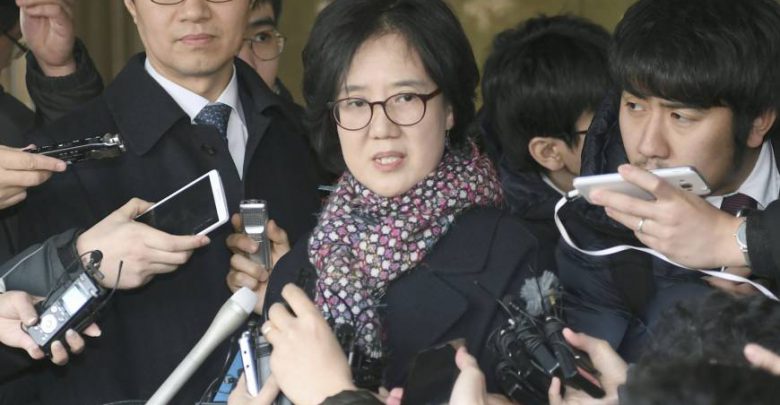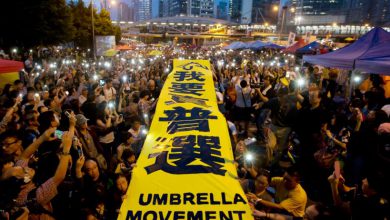AllAsia and OceaniaOngoingResolved
Democracy in the ROK, Korean Comfort Women and Colonialism
Although South Korea is Democratic, some serious offenses to the legitimacy of their democracy has been occurring, specifically in regard to academic freedom in telling the nuanced history of former Korean comfort women.

Dr. Park Yuha set out to tell the real, raw and uncomfortable history of Korean comfort women. Through her research, she discovered that the history of the former comfort women of the Japanese Empire did not exactly match the narrative shard by the South Korean government. After publishing her book “Comfort Women of the Empire,” Dr. Yuha was slapped with a lawsuit for defamation, which was surprisingly upheld by the South Korean high courts. This landmark ruling set a dangerous precedent for free speech and democracy in the region and should be examined closely.
Korean Colonial History, 1910-1945
After years of war, the Korean peninsula was annexed by Japan in 1910. Japanese colonialism was considered to be quite harsh; for the first ten years the country was ruled by the military and any dissent was swiftly absolved. After a national protest in 1919, the Japanese rule somewhat relaxes and allowed a degree of freedom of expression for the Koreans. Recognizably, many modern aspects of Korea were brought to the peninsula as a direct effect of Japan’s colonization. Some of the effects included rapid economic growth, urbanization and forms of mass media reaching the country such as movies and radio.
Although the purpose of Japan’s colonization of the Korean peninsula was strategic (the country provided land access to fighting wars in China and increased their exposure to the Pacific ocean) the industrial development experienced by Korea during the period of colonization continues to have longstanding effects on the region.
The wartime mobilization of Koreans during World War II, who were effectively Japanese citizens with all of the same rights and responsibilities, solidified the negative sentiment towards Japan, as the wartime mobilization of citizen to serve in the Imperial army for various roles, including manual labor, fighting, and the wartime use of comfort women lasted for many generations.
Unpaid Wages for Forced Labor?
Just this month, the highest court in South Korea ordered Japan to compensate four former workers of the Nippon Steel & Sumitomo Metal Corporation for labor served during World War II. During the war, Japan occupied many territories across Asia, including the entire Korean peninsula. Japan lashed back, stating that all monetary compensation was settled back in 1965 in a bilateral treaty between the two nations, which explicitly settled disputes of property claims and economic cooperation. A grand total of $800 million was given to Korean from Japan, and property and monetary claims between Japan and South Korea were solved finally with the signing of this treaty.
The Ugly Truth About Korean Comfort Women
During the height of World War 2, Comfort Women were those who served in military brothels before and during the war. The name “comfort woman” comes from the Japanese euphemism for prostitute. Not restricted to Korea, comfort stations were run in most countries occupied by Imperial Japan including Burma, Thailand, Vietnam, Malaya, Taiwan, the Dutch East Indies, and Timor. Numerical documentation varies from source to source regarding the number of women who served in comfort stations. The most conservative estimate is 20,000.
According to her research, Dr. Park Yuha discovered and publicized a story about former comfort women that did not align with the traditional notion of the women as forced sexual slaves. In fact, in her research, Dr. Yuha insisted that the comfort women were part of a volunteer system and many of the comfort women actually formed romantic and meaningful relationships with the Japanese soldiers. The preface to her controversial work gives a good summation:
I first confronted the comfort women issue in 1991. It was near the end my study in Japan. As a volunteer I was translating former Korean comfort women’s testimonies for NHK. When I returned to South Korea, Kim Young-sam was the president, and Korean nationalism was on the rise. The anti-Japan lobby “Korean Council for the Women Drafted for Military Sexual Slavery by Japan” or “Chong Dae Hyup” in Korean was really gaining momentum. Its leader said publicly it was determined to discredit Japan for the next 200 years. Its propaganda turned me off, so I stayed away from this issue for years. I regained my interest in this issue in the early 2000’s when I heard that Chong Dae Hyup was confining surviving women in a nursing home called “House of Nanumu.” The only time these women were allowed to talk to outsiders was when Chong Dae Hyup needed them to testify for UN interrogators or U.S. politicians. But for some reason I was allowed to talk to them one day in 2003. I could sense that women were not happy being confined in this place. One of the women (Bae Chun-hee) told me she reminisced the romance she had with a Japanese soldier and the sorrow when he died in combat. She said she hated her father who sold her. She also told me that women there didn’t appreciate being coached by Chong Dae Hyup to give false testimonies but had to obey Chong Dae Hyup’s order. When Japan offered compensation through Asian Women’s Fund in 1995, about 60 former Korean comfort women defied Chong Dae Hyup’s order and accepted compensation. Those 60 women were vilified as traitors. Their names and addresses were published in newspapers as prostitutes by Chong Dae Hyup, and they had to live the rest of their lives in disgrace. So the surviving women were terrified of Chong Dae Hyup and wouldn’t dare to defy again.
The Lawsuit and Threat to Democracy
Today, South Korea still harbors deep resentment towards Japan. Using a narrative of perpetual victimhood, a south Korean high court slapped Yuha with a guilty verdict over defamation of former Korean comfort women. This lawsuit sets a dangerous precedent, as it shows the power of a government body to deem something inflammatory just for the notion that it diverges from the official narrative. During the trial, a letter with over 70 prominent signatories including Noam Chomsky came to the defense of Dr. Park Yuha. Since the lawsuit and verdict, many have come to the realization that Korea is irresponsibly politicizing the issue for leverage against Japan, despite decades of apologies and agreements absolving the issue finally and irreversibly.




